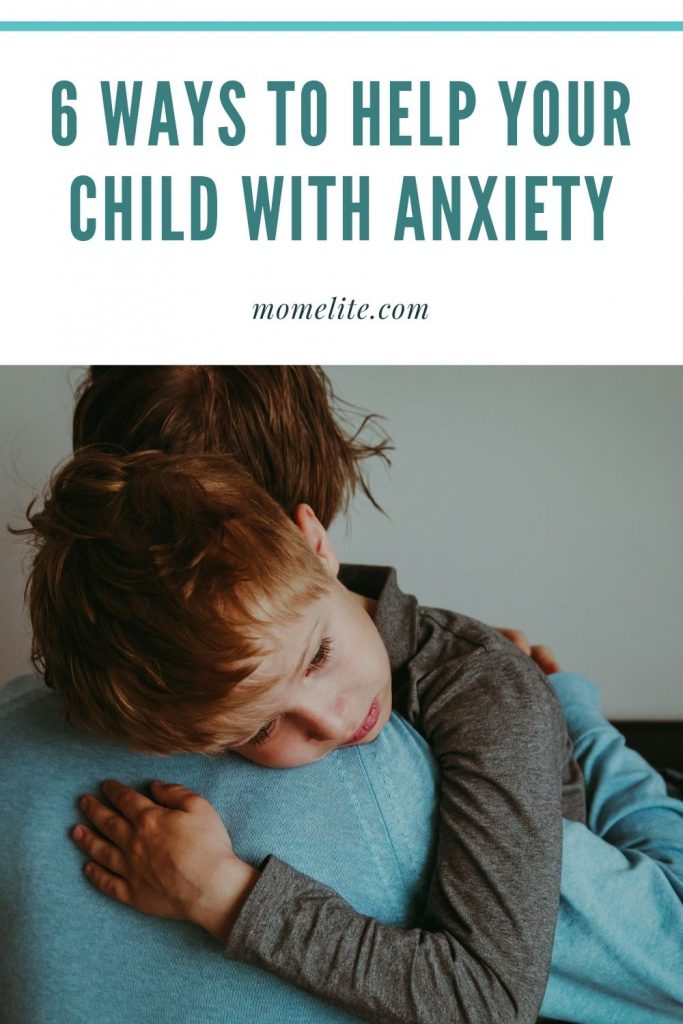
Everyone has struggles in their life, and your children are no exception. Unfortunately, many kids struggle with feelings of anxiety or even anxiety disorders, but with your love, support and care, your child can work towards the best self care and coping skills for them and learn to manage their anxiety much better. Everyone experiences anxiety from time to time, and while you can’t “cure” anyone of it forever, you can make an effort to support your child through thick and thin so they feel loved and cared for.
Everyone’s anxiety functions differently, and there may be certain tools that work for some kids better than others. Like with any parenting challenge, each situation and child offers their own learning curve. While some of these tips are more universal, others vary from child to child. See which methods work in your family and go from there.
- Know Their Triggers
This tip is pretty universal, no matter who you’re supporting. When it comes to your child, though, it’s especially important. While triggers can be associated with memories of trauma, they can also be things that cause emotional distress of any kind.
By knowing your child’s triggers, you can help them reasonably avoid anxiety-inducing situations or appropriately prepare and engage in aftercare when they do have a brush with their triggers. Understanding these elements of your child’s emotional experience can help you better prepare to care for them and be there for them.
- Make Lists
Sometimes, especially as kids get older, anxiety can be tied to the passing of time, forgetting things and other unpredictable realities of life. Often, having concrete representations of each day, tasks and activities can help with the feeling of control. Making to-do lists, calendars and using systems that help keep things in order can settle anxiety for many people — kids and adults alike.
- Get a Pet or Companion
Soothing and calming is often an important part of coping with anxiety. While human contact and companionship, stuffed animals and self soothing are all great coping mechanisms, pets can also serve as a great method of soothing for people with anxiety. Getting a cat, dog or even a nontraditional pet could provide your child with a companion as well as a soothing method. Emotional support animals are fantastic for this.
Methods of therapy involving animals have been proven to calm and help patients with anxiety and other mental illnesses — the success of feline therapy and cat therapy is an example of how spending time with animals often settles nerves, which can be especially helpful during anxiety episodes.
- Practice Mindfulness and Meditation
While many people hold the misconception that meditation is about “clearing the mind” it’s actually more about slowing down and noticing the present moment. Mindfulness and meditation are great methods of grounding, which often helps those with anxiety find a bit of peace and centering. Trying out meditations together can be a great first step into a long lasting practice that helps your child throughout their life.
Many individuals with anxiety feel that they are too anxious to meditate and don’t bother trying. As a parent, you can be the voice of reason and ensure that your child sees meditation and mindfulness not as a chore they can’t accomplish, but as a safe haven they can turn to for calming.
- Engage in Calming Activities
This one will be different for everyone, but finding calming and soothing activities that are right for your child and their routine can be a great way to cope during episodes of tension and anxiety. They don’t have to be anything fancy — reading a book, drinking a glass of water or doing something with the hands like crafting or playing with a toy are all great, simple options. Getting to know what activities calm and soothe your child and creating a routine that feels comfortable and familiar when they need safety is a great way to build a solid foundation of support.
- Seek Mental Health Support
While you are an integral piece of your child’s support system as their parent and caregiver, you are not a mental health professional. Finding professional support such as counseling or therapy for your child — or even your entire family — could be a great way to guide your decisions and knowledge. They can offer coping techniques, professional opinions and a listening ear. There’s nothing wrong with looking for professional support — in fact, it may turn out to be more beneficial than you realize.
Teaching Kids to Manage Anxiety
By creating an environment of love, support, care and understanding, you are not only showing up for your child in the present. You’re providing them with skills and emotional foundations for managing anxiety throughout life. You may not have all the answers, and it won’t always be easy, but by offering soothing techniques, working with your child to understand their triggers and being there for them when they need you, you can guide them towards a more peaceful existence one day at a time.